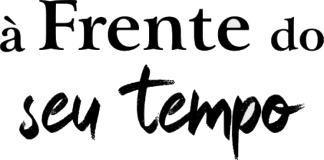Irina Bokova em Coimbra
Irina Bokova, born on 12 July 1952 in Sofia (Bulgaria), has been two terms the Director-General of UNESCO from 2009 to 2017. She was the first woman to lead the Organisation.
Having graduated from Moscow State Institute of International Relations, Irina Bokova was a Fellow at the University of Maryland, Washington, and followed an executive program at the John F. Kennedy School of Government at Harvard University.
As Director-General of UNESCO, Irina Bokova was actively engaged in the adoption of UN Agenda 2030 for Sustainable Development, particularly Goal 4 on inclusive and quality education, promoting the role of culture and the protection of the world’s cultural heritage, as well as advocating for the critical role of science for sustainable development.
She was particularly active in promoting intercultural dialogue, mutual respect and cultural diversity, defending cultural heritage in conflict in Mali, Syria and Iraq and in denouncing extremists’ destruction of heritage as a tool of war, which lead to the adoption by the UN Security Council of several important resolutions, particularly the land mark Resolution 2347 of March 2017 on the link between maintaining peace, security and the protection of cultural heritage.
She spearheaded global awareness and campaigns, such as #Unite4Heritage, to counter youth radicalization and prevent violent extremism, hate speech and discrimination, starting with action through education.
She has received state distinctions from more than 40 countries and is Doctor honoris causa of leading universities across the world, such as King’s College and University of Edinburgh, UK, University of Geneva, Switzerland, Paris-Saclay, France, Boston University, US, Catholic University of Milan, Italy, Tonji University, China, Kyung-Hee University, Republic of Korea, among others.
In 2016 Irina Bokova received the World Wild Life’s Duke of Edinburgh Conservation award for her contribution to environmental conservation and climate action and advancing sustainable development.
In 2016 she was on the Forbes list of the most influential women.
In 2020, she was elected International Honorary Member of the American Academy of Arts and Sciences and in 2021 - Honorary Fellow of the World Academy of Arts and Sciences (WAAS).
In 2022 she was elected Patron of the International Science Council (ISC).
Currently, she is Chair of the Governing Council of the UN University of Peace, Costa Rica, Member of the Board of “Ban Ki Moon Centre for Global Citizens”, Member of the Leadership Council of the Sustainable Development Solutions Network (SDSN), New York, Founder and Member of the Board of “Global Women Leaders”, Madrid, Member of the Concordia Leadership Council, New York, lecturer on cultural diplomacy and sustainability, SciencesPo, Paris, Chair of the Board of the “Democracy and Culture Foundation”, among other activities.
[EN]
Conference Program
DAY 1, Thursday 11th April 2024 - Seminar and workshop
Keynote speaker: Irina Bokova
Organizers: CEIS20|UC, REPROGRAM-EU, OppAttune, OICD
Date: 04/11/2024
Time: 14h -18h (local time)
Place: Seminar Room, CEIS20
Public: CEIS20 researchers, MA and PhD students (Contemporary Studies, Cultural Heritage and Museology, International Relations, European Studies…), other university public
1. Seminar
Topic: The Evolving Role of Cultural Diplomacy in a Globalized World
Description: In a globalised and interconnected world culture and cultural diplomacy play an increasingly important role in two major areas. The first one is still the traditional, “classical” understanding of cultural relations as displaying one’s culture to the others, or the outwardly directed. This is essentially interest-driven governmental practice, which aims at projecting a country’s culture, history and heritage as a statement about its place in the world. This type of “cultural diplomacy” is government driven, but takes expression in cultural relations, practiced largely by non-state actors. And the second - cultural diplomacy as a codification of norms, defining common values, establishing a common space for interaction and cooperation with the aim of defining “a common good”, mutual respect and understanding, preventing conflicts and promoting development and peace. The shifting geopolitics and the changing distribution of economic and political power in an era of globalisation brought about a new understanding of cultural diplomacy and its deep entanglement with terms such as cultural relations, soft power and public diplomacy.
2. Workshop
Topic: Harnessing the Power of Identity and Culture to Build Democratic and Societal Resilience
Description: This workshop, hosted by the Center for Interdisciplinary Studies of the University of Coimbra in the scope of the research projects REPROGRAM-EU (CEIS20 - PeX) and OppAttune (Horizon Europe) in partnership with the Organization for Identity and Cultural Development (OICD), explores how identity and culture-based perspectives and can be used to structure efforts to promote social transformation, counter and build democratic resilience against division, exclusionary politics and extremism, promoting peace and positive societal transformation. Drawing on insights from the fields of cultural diplomacy, peacebuilding, human sciences, history, cultural heritage and museology, the humanities and the arts, the workshop will showcase frameworks, methodologies, and practical applications that demonstrate the transformative potential of identity and culture-based approaches.
Agenda
14:00 - Keynote Speech by Irina Bokova, former Director-General of UNESCO
Title: The Evolving Role of Cultural Diplomacy in a Globalized World
In her keynote, Irina Bokova will discuss the shifting understanding of cultural diplomacy in an era of globalization. She will highlight two key aspects:
- The traditional role of cultural diplomacy in projecting a country's culture, history and heritage
- The emerging role of cultural diplomacy in defining common values, establishing spaces for cooperation, and promoting mutual respect, conflict prevention, and peace.
15:00 - Q&A with Irina Bokova
15:30 - Break
15:40 - Presentation by Joana Ricarte, CEIS20 - University of Coimbra and OICD Advisory Board
Title: Deconstructing Identity Weaponization and Extremism through Culture and Identity Programming
Dr. Joana Ricarte will present on the weaponization of identity and the formation of everyday extremism through narrative manipulation. Drawing on concepts and frameworks such as cultural violence and identity optionality, she will discuss practical applications and case studies.
16:00 - Presentation by Bruce White, OICD Director
Title: Identity-Based Research and Practice: The OICD’s EMIC Approach
Dr. Bruce White will provide an overview of the OICD's work on identity-based research and practice, with a focus on the EMIC (Engagement Method for Identities in Culture) approach. He will discuss how this methodology can be applied to build resilience (e.g. against violent extremism), and promote cohesion and the common good, referencing new and existing OICD programs and projects in these sectors.
16:20 - Q&A with Bruce White
16:50 - Break
17:00 - Joint Presentation by Bruce White and Joana Ricarte
Title: Introducing the UNESCO-OICD Toolkit for Social Transformation
Bruce White and Joana Ricarte will present the UNESCO-OICD Toolkit for Social Transformation, a practical resource for practitioners looking to harness the power of identity and the arts in their work. They will provide an overview of the toolkit's key concepts, frameworks, and practical tools.
17:30 - Q&A on the UNESCO-OICD Toolkit
17:55 - Final Remarks and Closing
By bringing together experts like Irina Bokova, Joana Ricarte, and Bruce White, the workshop aims to provide a comprehensive overview of the role of identity and culture in promoting positive change, while equipping participants with concrete tools and strategies they can apply in their own work. The interactive format, with opportunities for Q&A and discussion, will allow for a rich exchange of ideas and experiences.
DAY 2, Friday 12th April 2024 - Lecture
Open lecture by Irina Bokova
Date: 04/12/2024
Time: 17h-20h (local time)
Place: Room TP2, Faculty of Humanities and Arts (FLUC)
Public: MA students in Cultural Heritage and Museology, CEIS20 researchers, MA and PhD students (Contemporary Studies, Cultural Heritage and Museology, International Relations, European Studies…), other university public
Topic: Culture, Heritage and Sustainable Development
Description: Within the framework of the Sustainable Development Goals (SDGs) adopted in September 2015 by the United Nations, the international development agenda refers to culture for the first time. This has been lauded by UNESCO as “an unparalleled recognition”. The safeguarding and promotion of culture is an end in itself, and at the same time it contributes directly to many of the SDGs — safe and sustainable cities, decent work and economic growth, reduced inequalities, the environment, promoting gender equality and peaceful and inclusive societies. If the purpose of the Agenda 2030 for Sustainable Development is an agenda of the people, by the people and for the people, then culture and heritage should play a very central role. All the more that the SDGs enshrine a conceptual shift in thinking about development beyond economic growth — envisioning a desirable future that is equitable, inclusive, peaceful, and environmentally sustainable.
Registration is free but mandatory. Limited spaces available. Register by April 10th by filling this form: https://forms.gle/F4vPSGxj6QJd6HWJ8





